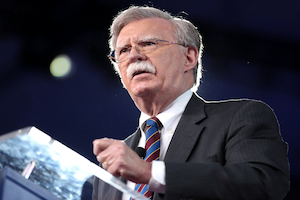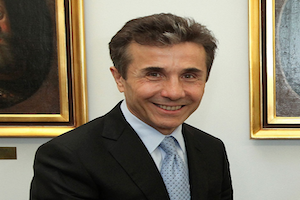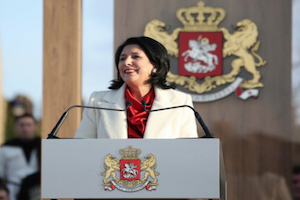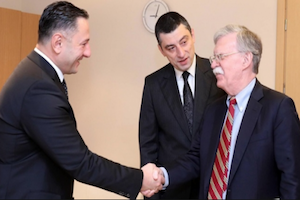Why Washington Must Re-Engage the Caucasus
By Stephen Blank
July 8, 2019, the CACI Analyst
In late 2018, National Security Council Director John Bolton signaled a revived U.S. interest in the South Caucasus by visiting all three states of the region. While the outcome remains unclear, the visit itself clearly signaled a U.S. interest in reviving a robust presence in the Caucasus. Indeed, U.S. interest should not only stem from the Caucasus’ proximity to Iran and Russia, or considerations relating to energy flows to Europe. The Nagorno-Karabakh conflict between Azerbaijan and Armenia has seen repeated recent outbreaks of violence and the issues and alignments growing out of this conflict spill over into all the other issues pertaining to the Caucasus that justify a renewed U.S. presence. Regenerated U.S. action to help terminate the Nagorno-Karabakh conflict peacefully is necessary because of the visibly mounting frustration and despair in the war zone.

Georgian Politics: Awaiting Revitalization
By Neil Hauer
March 13, 2019, the CACI Analyst
Georgia’s final presidential elections in October and November 2018 served as a microcosm of the current uninspired state of Georgian politics. Although the incumbent Georgian Dream (GD) party and its leader, Bidzina Ivanishvili, were able to triumph over their opponents, the trials they faced in doing so underscored the degree to which they have lost public confidence. Exiled former president Mikheil Saakashvili, who played a major role in campaigning for the candidate of his United National Movement (UNM) party, also appears to be a largely spent force. Georgia seems to be in need of a new political movement that can mobilize enthusiasm, but it is unclear when, or from where, this will emerge.

Georgia's Last Direct Presidential Elections
By Natalia Konarzewska
January 16, 2019, the CACI Analyst
On November 28, 2018, Georgians elected their next president in the second round, in the last direct presidential elections before the country fully switches to a parliamentary system. Salome Zurabishvili, an independent candidate endorsed by the ruling Georgian Dream (GD) party, won the election by securing 59 percent of the vote against opponent Grigol Vashadze from United National Movement (UNM) who received 40 percent. Zurabishvili received the largest number of votes in the first election round on October 28 but did not reach the 50 percent threshold needed to win. Observers assessed that elections were largely competitive but not fair. Some irregularities and incidents occurred during the voting, however, they did not seriously affect the outcome.

Land Swap With Chechnya Causes Mass Protests in Ingushetia
By Emil A. Souleimanov and Huseyn Aliyev
December 20, 2018, the CACI Analyst
On September 26, the heads of Ingushetia and Chechnya, Yunus-Bek Yevkurov and Ramzan Kadyrov, signed an agreement on a proposed land swap between the two Northeast Caucasian republics. While the Chechen public welcomed the plan, which was kept secret until it was signed, the agreement sparked unprecedented protests in Ingushetia. Several thousand Ingush protesters in the republic’s capital Magas have found sympathy from both Ingush siloviki and the public in their resistance to the deal. With bottom-up opposition to the land swap spreading in Ingushetia, this “Maidan” in Russia’s geographically and demographically smallest republic may have far-reaching implications not only for Ingushetia and Chechnya, but also for the rest of the Russian Federation.

Bolton's Caucasian Tour and Russia's Reaction
By Eduard Abrahamyan
December 17, 2018, the CACI Analyst
On October 24-26, a U.S. State Department delegation headed by National Security Adviser Ambassador John Bolton visited the South Caucasian republics after talks in Moscow. The delegation’s visit to Azerbaijan, Armenia and Georgia was immediately dubbed a reinvigoration of U.S. policy towards the Caucasus and a pragmatic reengagement with the conflicted region. Bolton appeared to refine the evolving U.S. priorities with each country, categorizing them in accordance with political capabilities, shared interests and the roles that Georgia, Azerbaijan and Armenia respectively seek in relations with the West. The visit, however, caused an angry reaction from Moscow, especially given the issues Bolton raised in Yerevan.



